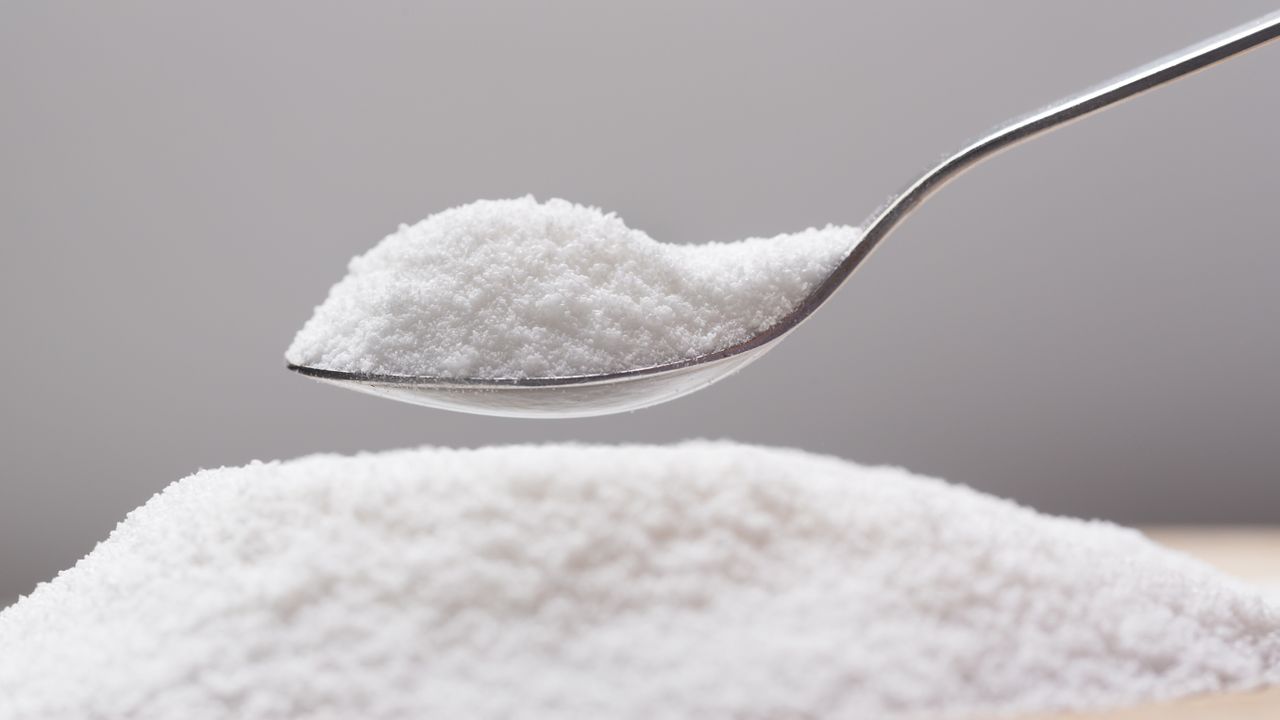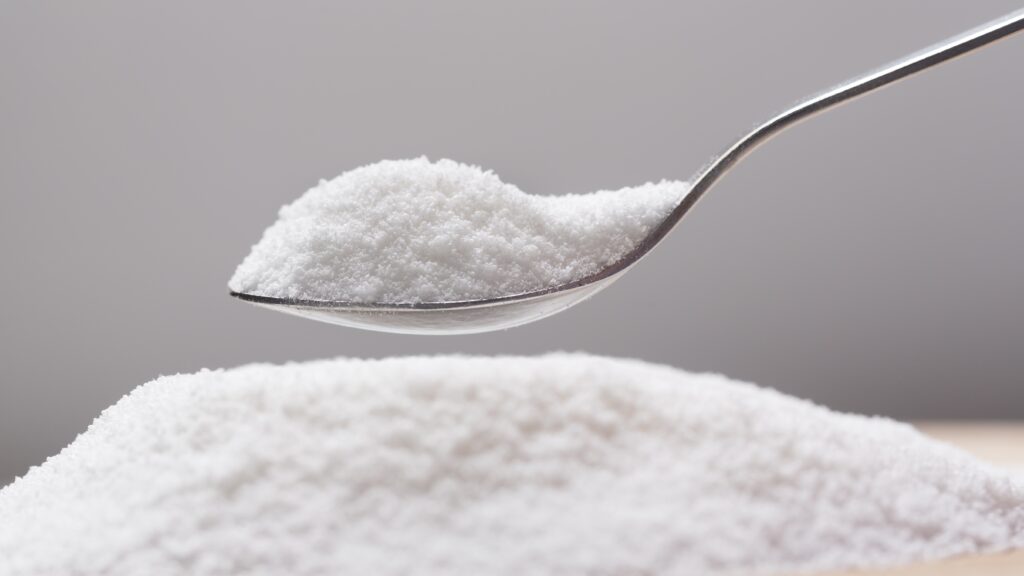
The popular zero-calorie sweetener erythritol may damage cells lining the brain’s blood vessels, a new laboratory study suggests.
This raises concerns about whether the sweetener increases the risk of stroke — but experts caution that more research is needed to know how these results might actually impact human health.
“This study was done in a controlled setting on isolated cells, rather than a whole living organism,” said Amy Reichelt, a nutritional neuroscientist at the University of Adelaide in Australia, who was not involved in the study. “So the actual physiological impact on human health in everyday dietary contexts remains uncertain,” Reichelt told Live Science in an email.
Erythritol is a sugar alcohol often found in sugar-free and low-carb products. It also occurs naturally in fruits, such as grapes, and is made by the body in small amounts, though commercial erythritol comes from fermented corn. Nearly as sweet as sugar but with no calories and a negligible effect on blood sugar, it’s long been a go-to for people managing their sugar intake.
But some research suggests that the sweetener may not be risk-free. A 2023 study published in the journal Nature Medicine, which involved more than 4,000 people in the U.S. and Europe, linked high levels of erythritol in the blood with a greater risk of blood clots, stroke, and heart attack. That same year, the World Health Organization (WHO) advised against the long-term use of non-sugar sweeteners, citing evidence that they don’t aid weight control and may raise the risk of certain conditions, including type 2 diabetes and cardiovascular diseases.
However, both the 2023 study and WHO flagged that, due to limitations in the data, scientists don’t completely understand potential health risks. The new study, published June 16 in the Journal of Applied Physiology, dug into this further.
Related: Non-sugar sweeteners don’t help with weight loss and may come with health risks, WHO says
The researchers grew human brain endothelial cells, which line the brain’s blood vessels, in the lab and exposed them to erythritol for three hours. They used the equivalent of 30 grams of the sweetener, about as much as would be found in a pint of sugar-free ice cream.
After the three hours were up, they observed signs of stress: the cells produced more free radicals, reactive molecules that can damage and age cells, compared to cells that hadn’t been exposed to the sweetener. They also noticed a drop in nitric oxide, a compound that helps dilate blood vessels, and a rise in endothelin-1, which makes blood vessels narrow.
They also tested the cells’ response to thrombin, an enzyme involved in forming blood clots. The cells exposed to the sweetener released less of a protein, called tissue-type plasminogen activator (t-PA), that breaks down blood clots than did the unexposed cells. If this clot-dissolving protein was “significantly blunted” in the body as well, that could interfere with blood flow and potentially raise the chances of stroke.
“In our experiments, we cultured human brain endothelial cells, which are a strong indicator for those in the body,” senior study author Christopher DeSouza, a professor of integrative physiology at the University of Colorado Boulder, told Live Science in an email. “Our findings provide additional insights into how elevated erythritol levels might contribute to increased stroke risk and help reveal potential underlying mechanisms.”
However, DeSouza cautioned that the study tested only one dosage of erythritol under lab conditions, when cells were directly exposed to the substance for an extended period, which may not reflect real-world use of the sweetener. “We need more studies to see if these effects hold up with repeated or long-term exposure, or in other types of cells,” he said.
Reichelt agreed, adding that while laboratory studies provide valuable insights, translating these findings to real-world effects requires caution.
Nonetheless, Reichelt added that “the observed cellular changes raise valid concerns about long-term vascular health,” so people with existing cardiovascular problems may want to moderate their intake. “While erythritol is generally considered safe by regulatory agencies, excessive intake in some people or over a prolonged period could pose risks,” she said.
DeSouza stressed the need for more research to determine how much erythritol can be consumed without harm.
“At this stage, we can’t define a specific safe upper limit,” DeSouza emphasized. “But if you regularly consume sugar-free or diet products, it’s wise to keep an eye on how much erythritol you’re consuming.”
This article is for informational purposes only and is not meant to offer medical or dietary advice.
